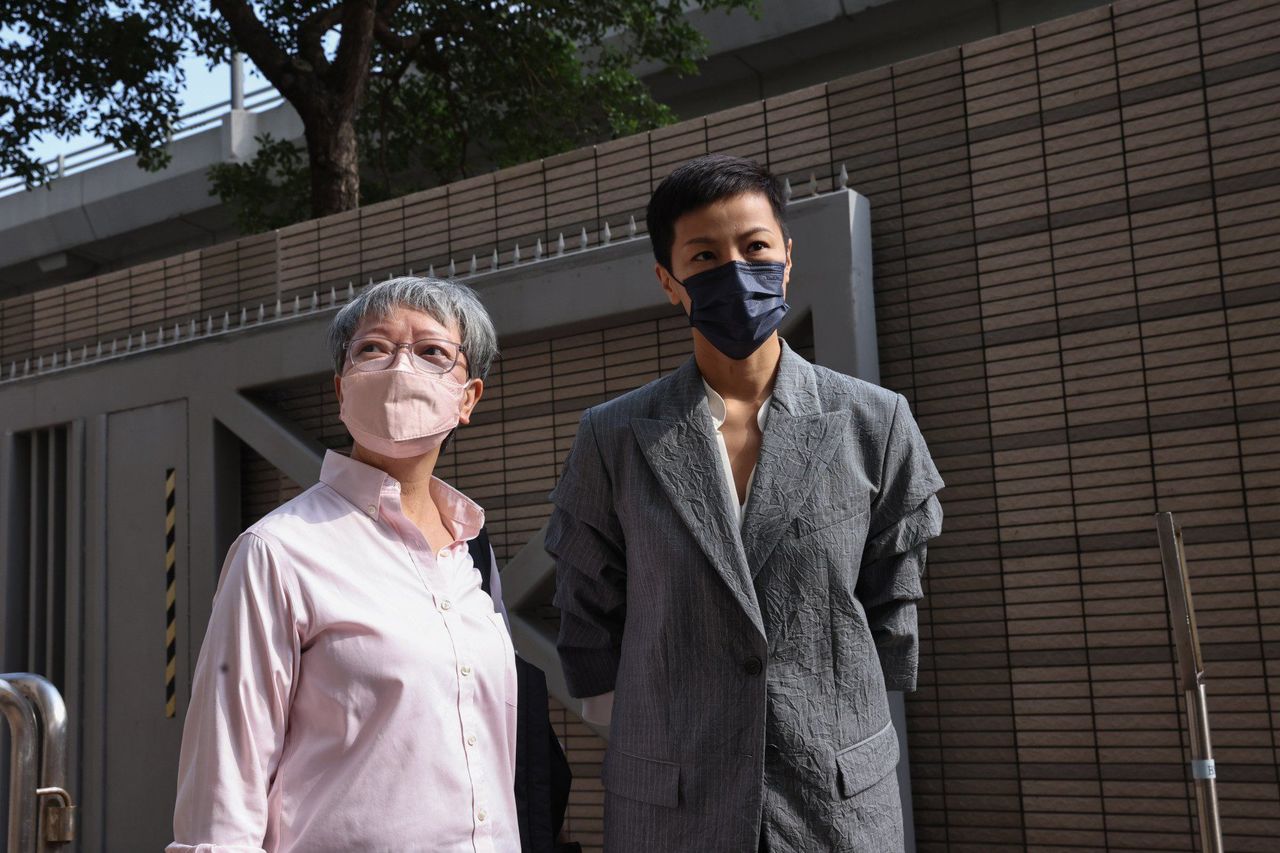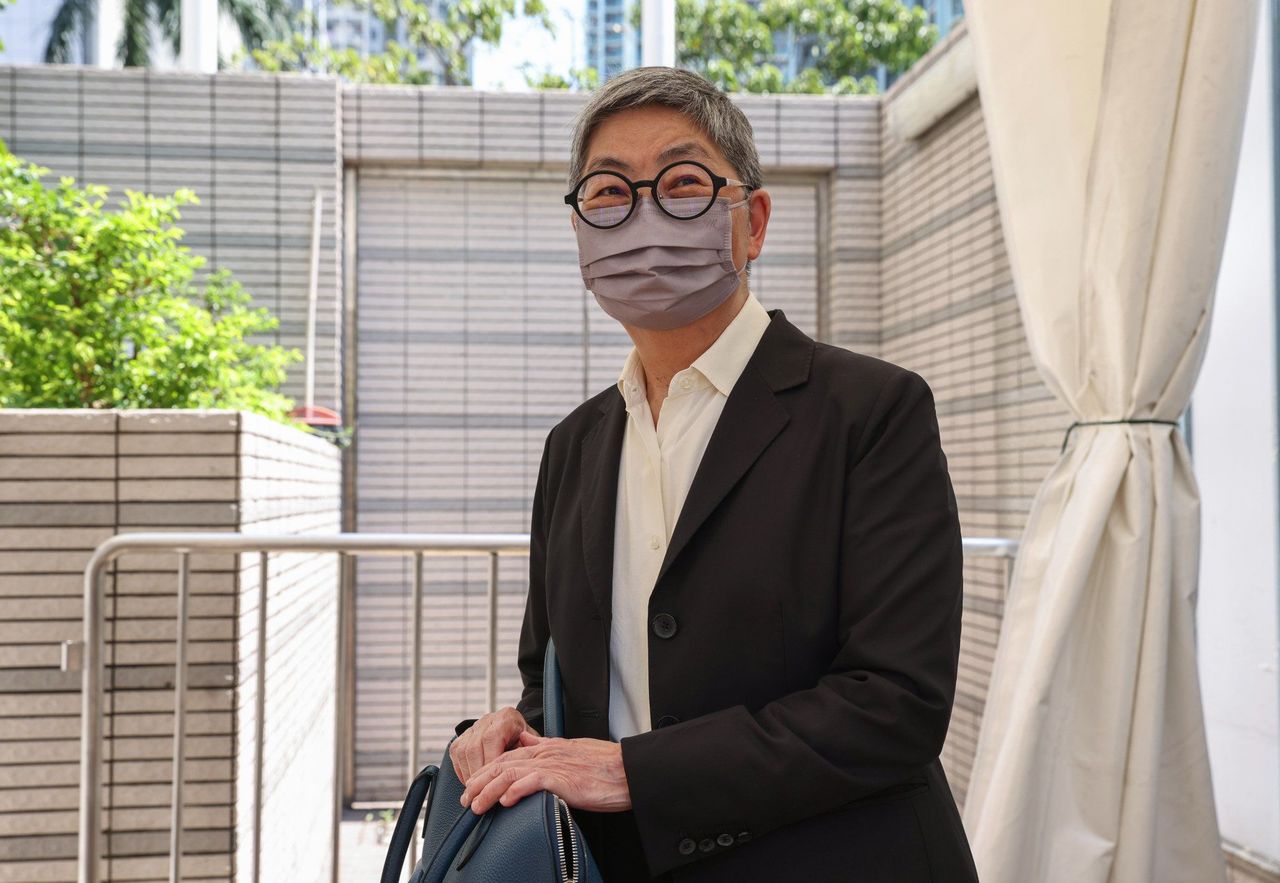Prosecutors say now-defunct 612 Humanitarian Relief Fund received HK$270 million in donations between June 2019 and October 2021.
A legal fund for those embroiled in the 2019 Hong Kong protests was a political organisation disguised to further the demonstrators’ cause and trigger sanctions on officials, prosecutors said on Monday, accusing retired Catholic leader Cardinal Joseph Zen Ze-kiun and five other activists of failing to get approval for the group.
West Kowloon Court heard that the now-defunct 612 Humanitarian Relief Fund had received HK$270 million (US$34 million) in donations between June 2019 and October 2021, with some of the money used to subsidise anti-government protest organisers, international lobbyists and foreign organisations hostile to Beijing.
Prosecutors said the fund, named after a major demonstration on June 12, 2019, was ineligible for registration exemption under the Societies Ordinance, as it was not created solely for charitable or social purposes.
 Cyd Ho (left) and Denise Ho arrive at West Kowloon Court.
Cyd Ho (left) and Denise Ho arrive at West Kowloon Court.
The defence counsel complained about their opponents’ depiction of the fund as a resistance group and expressed fears the court’s findings in the case would be used to press charges under the Beijing-imposed national security law against the same defendants in future.
Zen, 90, was the fund’s trustee alongside singer Denise Ho Wan-see, former Lingnan University academic Hui Po-keung, and ex-opposition lawmakers Margaret Ng Ngoi-yee and Cyd Ho Sau-lan. The sixth defendant, Sze Ching-wee, was the fund’s secretary.
The six have denied a count of failing to apply for registration within a specific period between July 16, 2019 and October 31 last year.
The ordinance stipulates a local organisation must register with the societies officer, who is the police commissioner, or ask for an exemption within one month of its establishment, or organisers could be fined HK$10,000 upon a first conviction.
The trial centres on whether the fund required registration and if the six accused were office-bearers, as defined under the ordinance.
The prosecution’s opening statement largely focused on the fund’s opposition stance and its involvement in political campaigns.
Prosecutor Anthony Chau Tin-hang said some defendants had encouraged residents to stand up against a now-withdrawn extradition bill, which would have enabled the transfer of fugitives to mainland China, and slammed police for their use of force against protesters.
Chau referred to a press conference in July 2019, where Zen said he was thankful to youngsters who voiced their discontent with the government and wished those who caused the unrest would bear responsibility.
In the same event, Ng warned of taking protesters’ grievances to “the international level” if the government failed to agree to their demands.
At a street booth in January 2020, ex-lawmaker Cyd Ho said the fund would cooperate with foreign organisations and continue to support those subjected to “arbitrary arrests and violence” until the city’s “liberation”.
“The 612 Fund is a local organisation that bore political demands. Apart from the five trustees advocating their political stances, it can be seen from its trust documents and daily operations,” Chau said.
A trust deed signed in June 2019 stated one of the fund’s objectives was to sponsor human rights campaigns “in furtherance of the spirit” of the 2019 anti-government protests, including inquiries concerning the unrest held by international bodies such as the United Nations.
Bank transaction records showed the fund had spent at least HK$4.2 million in political activities, such as offering HK$246,990 to the now-dissolved Civil Human Rights Front in August 2019 to cover audio equipment expenses.
 Ex-opposition lawmaker Margaret Ng Ngoi-yee.
Ex-opposition lawmaker Margaret Ng Ngoi-yee.
A month later, the fund sponsored a group of university students HK$5,000 for transport and meals during a trip to London and Geneva, where they urged European officials to sanction Beijing and the Hong Kong government.
It also donated HK$3.76 million and HK$200,000, respectively, to the Taiwan-based Judicial Reform Foundation and New Hong Kong Cultural Club, a pro-independence group founded by Hongkongers in Canada.
The defence argued the trust deed and bank records, seized by national security police in accordance to a production order by the High Court in 2021, were irrelevant to the present proceedings.
Senior counsel Gladys Li, representing Hui, said it would be deeply unfair to the defendants if the court was to make findings on evidence related to a suspected national security offence.
Principal Magistrate Ada Yim Shun-yee, however, said she did not see any ulterior motive in prosecutors submitting these documents apart from proving the defendants’ failure to register the fund in time.
The prosecution is expected to call three police witnesses to testify starting Tuesday.















